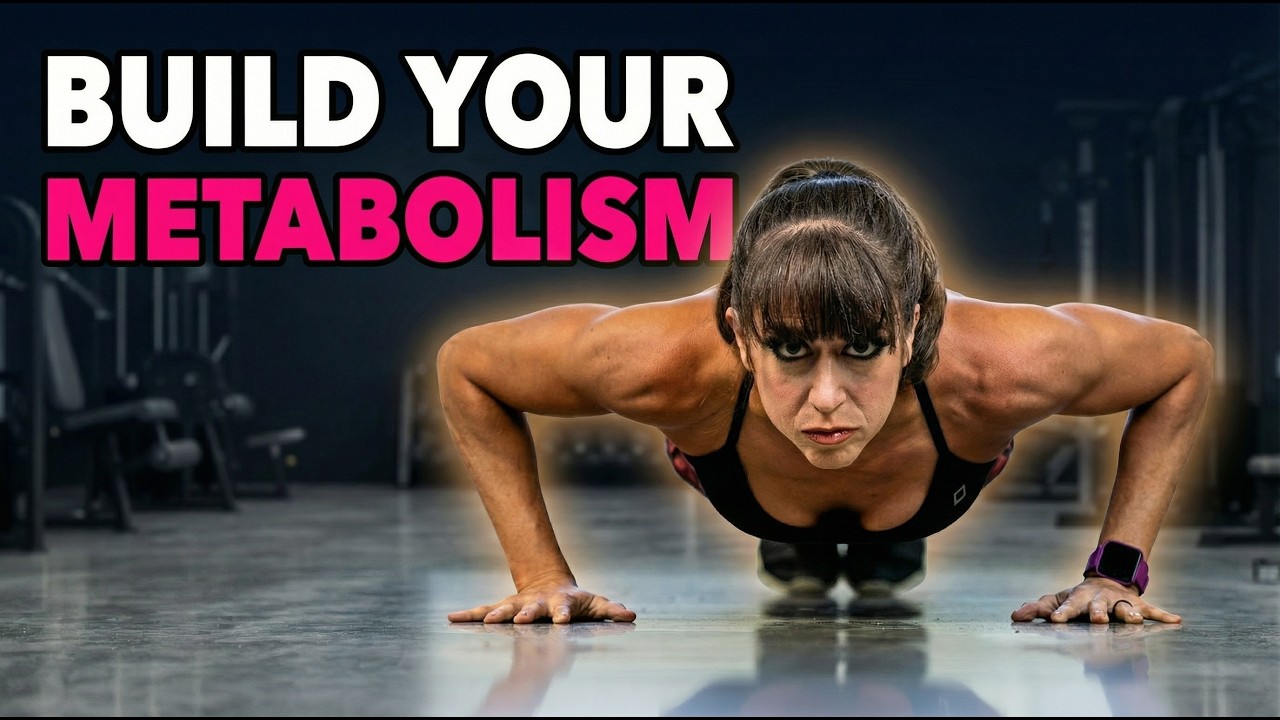“How many calories do I need to eat?”
This is a question I get numerous times a day.
And it’s an interesting question with an answer that is based on, not only your goals, but a few basic things…
These three things are…
1. To lose weight, you have to be in a calorie deficit.
2. To gain weight, you’ve got to eat to support muscle growth.
3. Calories are not created equal. Quality and type matter.
These three things are KEY when figuring out how many calories you need.
They are often also why we get into trouble with our diets.
 Too many people know #1 and therefore cut their calories way too low.
Too many people know #1 and therefore cut their calories way too low.
They end up starving themselves, which not only can slow their metabolism and cause them to store fat BUT also leaves them so hungry and angry they end up binging.
HOWEVER, on the flip side, so may people today use Fitbits and other fitness trackers and see they burned 300-500 calories and think that entitles them to eat even more.
I mean if you burn more, you get to eat more, right?
Yes BUT overtime our bodies become more efficient as we workout. They adapt to the stresses placed on them.
Are you accounting for that?
Are you sure your fitness tracker is accurate?
Also, what is your baseline based off of that you are ADDING IN extra calories you burned?
And on top of that, you then have to cycle UNDER on days off. If you’re cycling up on workouts, how often are you cycling UNDER on days you don’t move much?
All that cycling just makes for madness. And it’s freaking hard to track which leaves us guessing at what is working.
Ok so probably right now, all I’ve done is confuse you more.
I’ve said you can’t cut your calories too low. But then I’ve said too much is bad too and that adding in the calories you burned during workouts is a more challenging and complicated process than we account for.
So what do you do?
This right here is why #3 is so important. Quality and type of calories MATTER.
200 calories of meat, veggies and rice is way more filling than 200 calories of M&Ms. It also helps our body function correctly, sleep better and fuels our workouts more effectively.
This is why a 1,200 calorie diet with proper macros may be enough while 2,000 calories of crap may leave you hangry and starved. That doesn’t mean you can’t still enjoy the foods you love, it just means that getting quality foods will help you stay full, energized and get the results you want FASTER!
And I’m not saying everyone should be at 1,200.
I’m just saying there is a HUGE difference in how you’ll feel and how your body will operate eating the same number of quality vs. crap calories.
 If you can dial in these ratios, you’ll be giving your body what it needs vs. empty calories that leave you hungry even when you’ve technically consumed enough calories.
If you can dial in these ratios, you’ll be giving your body what it needs vs. empty calories that leave you hungry even when you’ve technically consumed enough calories.
Quality calories will make you feel fuller even on a calorie deficit and one of the benefits of high protein is that it is hard to gain weight even if you “eat too much.”
Eating these ratios, you can change your body composition WHILE fueling your muscle growth by giving it the building blocks it needs EVEN if in a slight calorie deficit.
And then instead of cycling, just set one calorie goal.
That way on recovery days you get your body what it needs and you fuel your workouts. You won’t have to cycle down or up.
So you’re probably still wondering…How many calories do I need?
But my point is the quality and type is even more key to determining that.
It’s why I’ll get people saying “Holy crap I thought 1,300 calories would be too little but I’m stuffed.”
But it’s also why people say “Holy crap I thought I’d gain weight eating 1,800 calories, but I’ve lost inches when I used to eat 800 and still not lose all of the time.”
All of this is why I recommend if you want to lose weight, you start with 11x goal bodyweight (in pounds) and if you want to change body composition or maintain your weight while looking leaner you start with 13x goal bodyweight (again in pounds).
Of course it still always DEPENDS and each of our metabolic rates are different, but I always tell people…
START HERE. There has to be a starting point. If you don’t give something a shot, you’ll never know if it works.
Focus on the ratios and from there you can add or reduce calories as you hit those ratios. But hitting those ratios and getting QUALITY CALORIES is key!
For more tips to help you calculate calories and macros as well as amazing recipes and even sample meal plans, whether you want to lose weight, gain muscle, train for a marathon or deal with the dreaded weight gain often associated with menopause, check out my Macro Hacks!




0 Comments